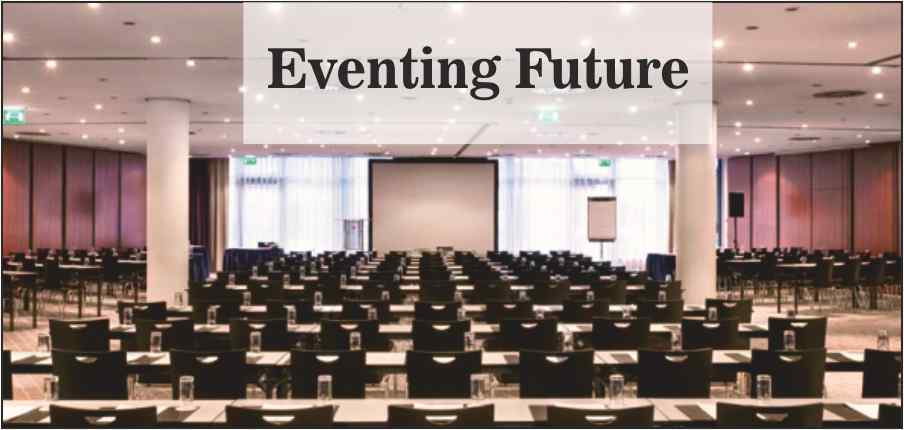Event management is a multi-million dollar industry with colossal shows and events hosted regularly. The growth of sophisticated companies has brought forth a swell of meetings, seminars, conferences, exhibitions, and product launches as a matter of flair and class. When organizing an event experience, you want it to be memorable, unique and amazing. This is where technology can play a major role.
The recent technological advancements continue to connect people and engage them in valuable interactions. Event management industry, today, is leveraging this lightweight technology to facilitate greater public engagement.
Every event technology centers on many of the same essential elements: connecting people through networking, increasing engagement and spreading information. It is estimated that the event technology market will grow to a whopping 9.3 billion USD by 2020.
Let’s take a look at some of the biggest event technology trends and how one can leverage them to improve public engagement and better manage events.
Drones
Drones are continuously evolving and are becoming an important part of the event management industry. They can provide powerful ways of connecting people, securing venues, provide useful analytics and improve the overall quality of the event.
The lack of wifi or network can be a nuisance when trying to stay connected. Drones imbibed with the technology usually found in network towers can be sent to hover above the crowd and ensure continuous signal.
In order to monitor large events, cameras can be fitted into drones to detect security violations and signs of disturbances in crowded areas. Continuous aerial monitoring during events will also help in proficient delegation of security personnel to the site of distress.
Apart from this, drones can be used to play the favorite songs of a person while hovering above their heads, resulting in a much exciting experience for the crowd. Along with this, drones can also be combined with virtual reality technology and create an ultimate immersive experience for everyone.
Artificial Intelligence
The past year has seen a rise of artificial intelligence or AI based assistants that increase the productivity of people in everyday activities. These same AIs can be used to provide an added boost to events when it comes to personalization. AI draws its power from the cloud and the people, where it learns by observing questions and responses of millions of users. Hence it can be used as a personal concierge, virtual event assistant and even for branding. An AI can also lend its personality to your event as it can interact with hundreds of people at the same time.
Internet of Things
Internet of Things (IoT) is the interconnectivity between objects via a wireless network. In an event, it can be used to control the temperature in relation to the number of people inside it, or a microphone that would gently remind a speaker to raise their voice because the people in the back can barely hear. IoT can have a multitude of usage and is only limited by one’s imagination.
Live Streaming
The most revolutionary technology for the events industry are the live streaming apps and platforms that allow people to instantly share live videos during events on their social media pages. Thus, allowing the event industry to generate a larger audience for an event by allowing people to watch the event live and interact with other people viewing the live stream. This opens up new revenue streams and allows the event to generate higher quality content that is engaging for attendees as well as the viewers.
Wearable Technology
Wearable Technology like smart watches, give event planners the opportunity to make guests and attendees lives much easier. This wearable technology can be used as admission ticket, a GPS system, as an inbox to send important messages and many more activities.
Virtual Reality
Recently, there has been a huge rise in the use of virtual reality (VR). It can be used to visualize 3D models, do walkthroughs, play games, and so much more in immersive ways. An independent survey suggested that VR can increase customer attachment by 27%. These technologies will engage your event’s attendees like never before by immersing them into worlds and experiences they otherwise would have no way of visiting.
Multi – Sensory Engagement
The recent state-of-the-art multi-sensory experience leverages all the senses to make attendees believe that they are somewhere else and then drive that emotional connection to the experience. There is no end to the possibilities available to event planners when it comes to technology implementation. And multi-sensory engagement will help you put it all together into a successful event strategy that will amaze the attendees while achieving face-to-face marketing objectives.
The event management field is becoming more and more dependent on technology. But the technology is changing quickly, closely following the needs of its end users.
Classy event management solutions are bridging the gap between the physical and virtual worlds, creating a frictionless, unified experience for event attendees. They aim to solve key challenges for event organizers that would help them to plan successful events.

Insights Success stands as the epitome of trust and authority. It has earned its reputation as the foremost source of business intelligence, providing readers with a gateway to the pulse of Bharat’s advancing business landscape.
Quick Links
Enquiry
info@insightssuccess.in
for more information on advertising opportunities with Insights Success magazine.
8793630422 / 24
Reach out to Us
Insights Success Media and Technology Pvt. Ltd.
512, Brand Square,
Kunal Icon Rd, Pimple Saudagar,
Pune, Maharashtra 411027

